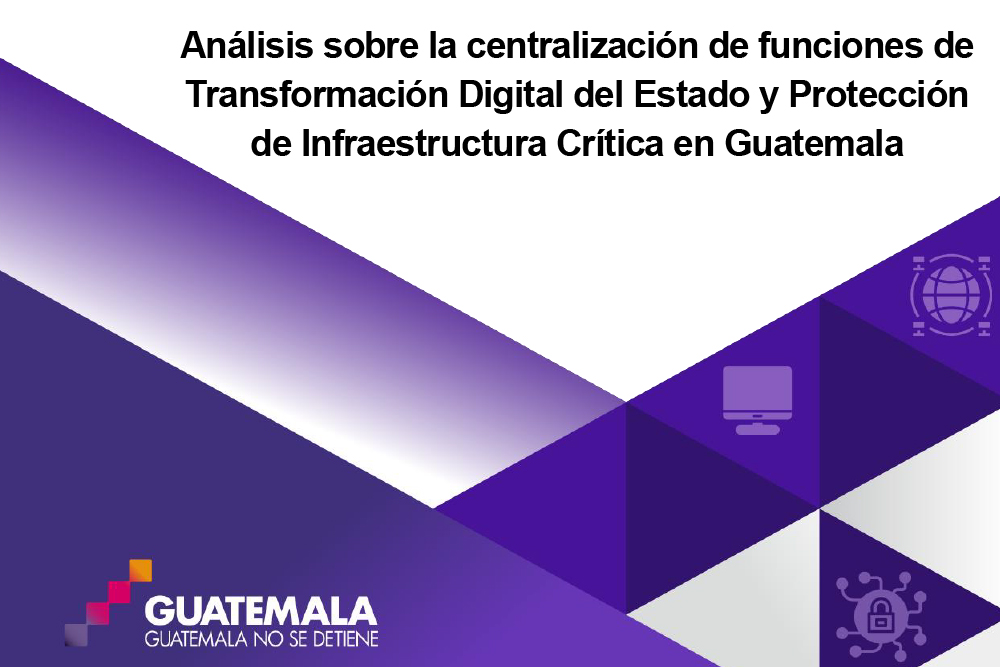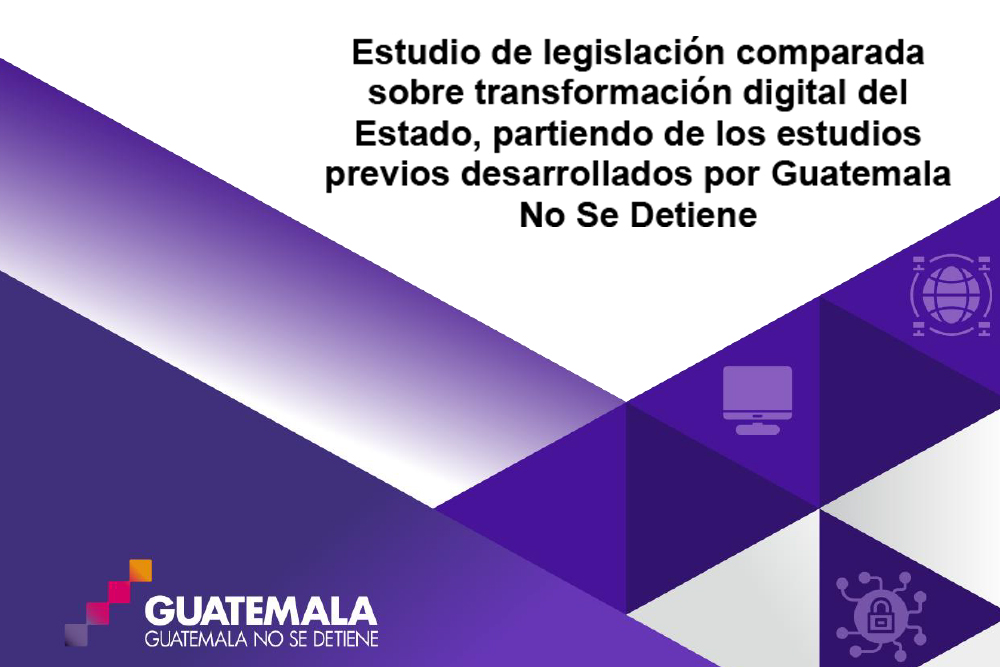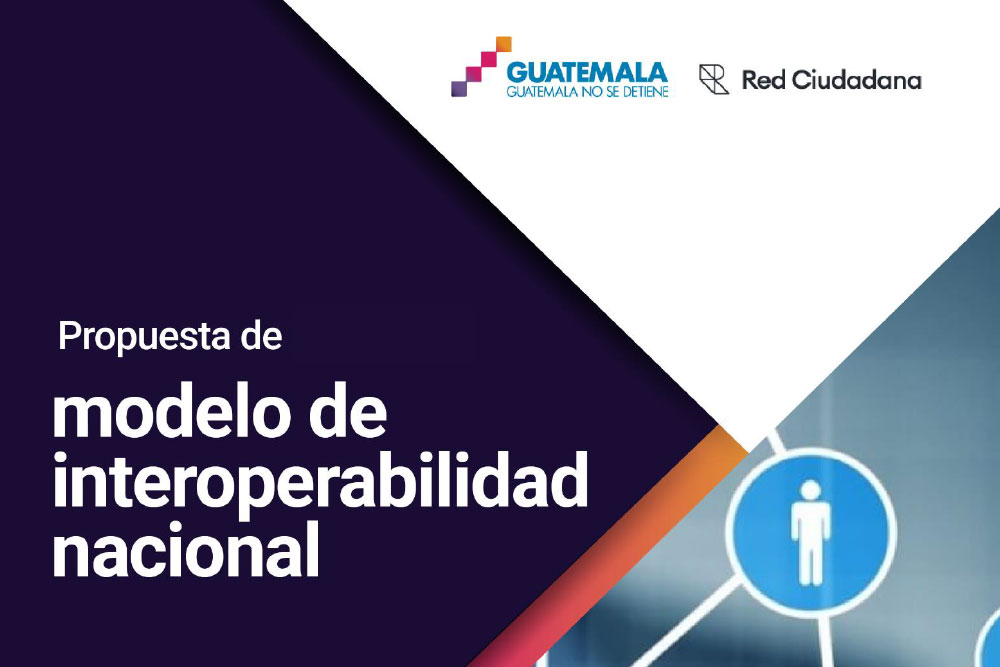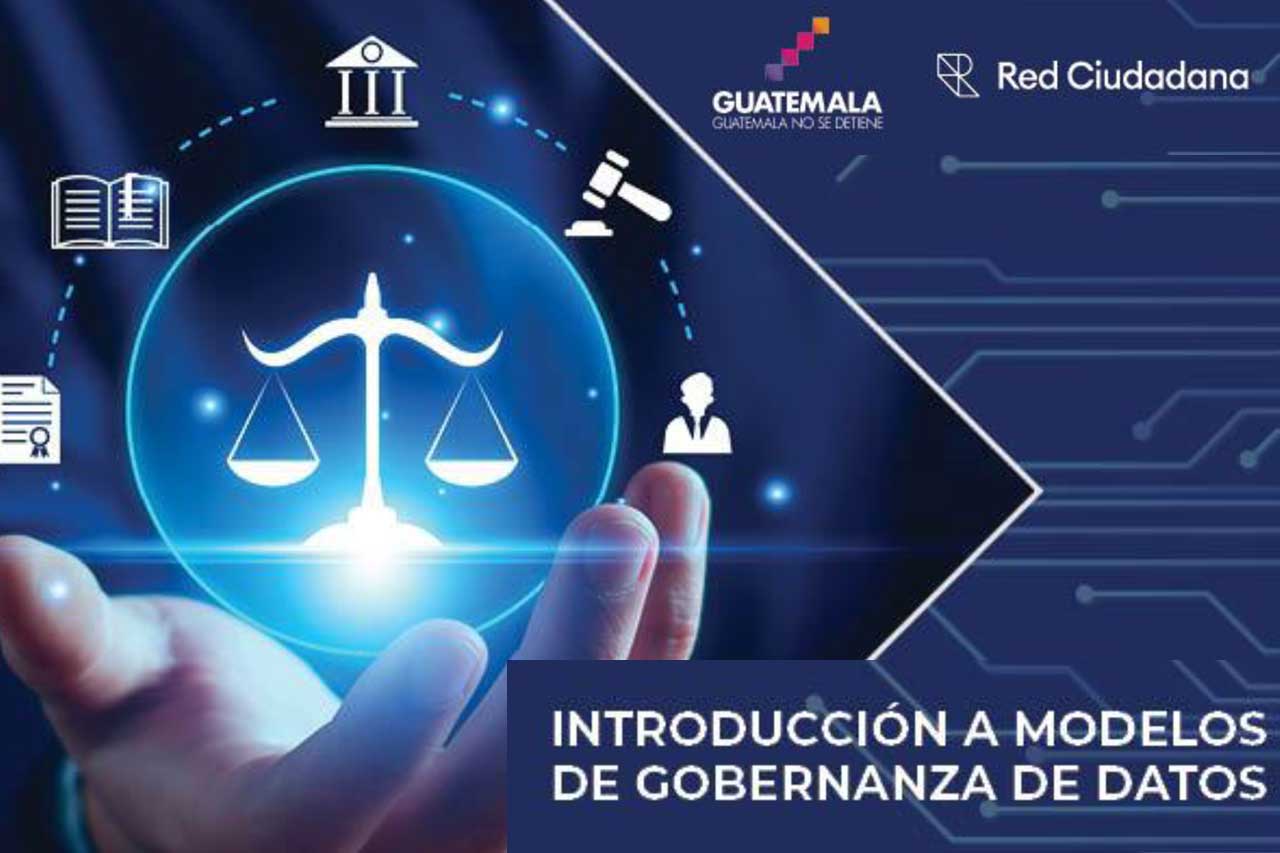Events
- All
- 2024
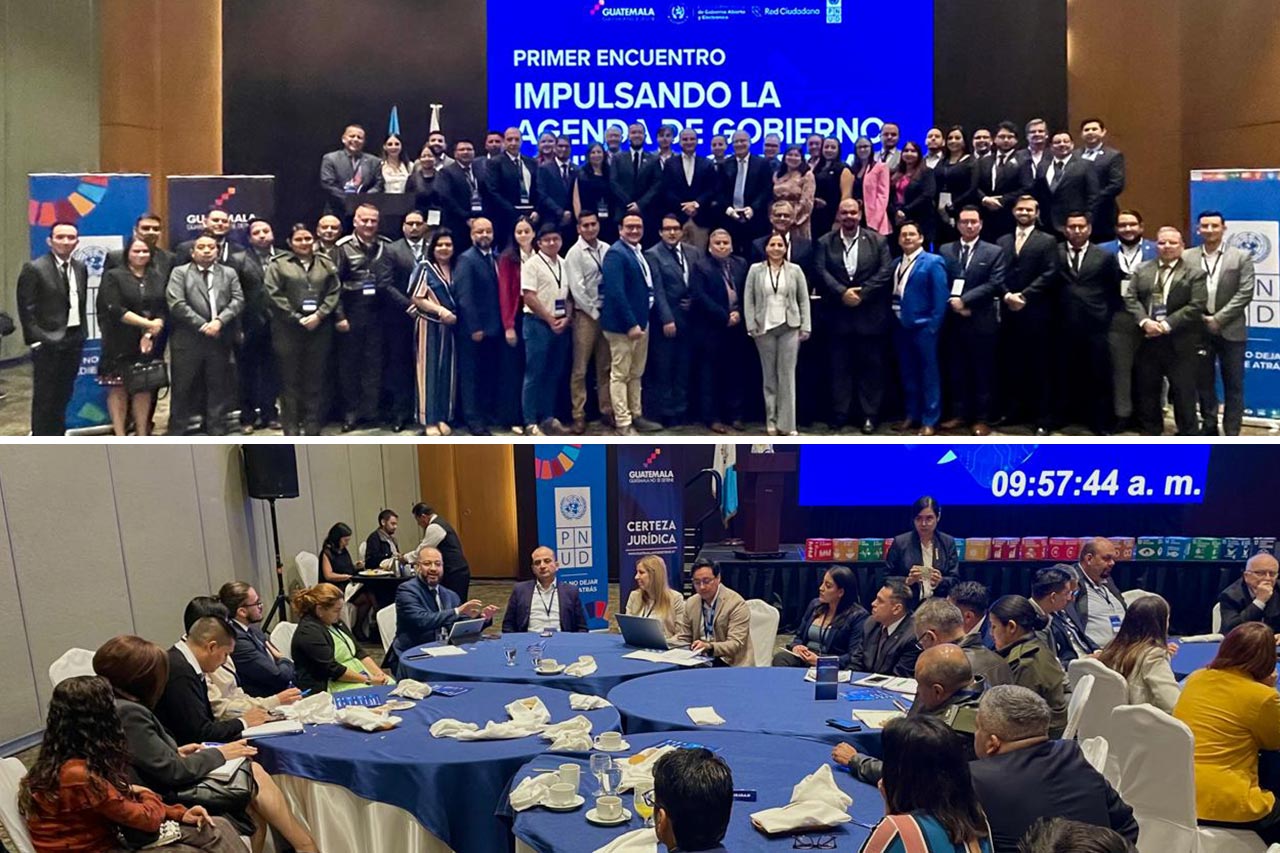
First Meeting: "Advancing the Digital Government Agenda in Guatemala"
As part of a strong commitment to advancing modernization and efficiency in public administration, the Government of Guatemala—through the Presidential Commission for Open and Electronic Government, in collaboration with the #GuatemalaMovingForward initiative, the United Nations Development Programme (UNDP) Guatemala, and the civil society organization Red Ciudadanaheld the first meeting “Advancing the Digital Government Agenda in Guatemala,” with the objective of promoting sustainable and inclusive development that benefits all Guatemalan citizens, laying the groundwork for a constructive dialogue that addresses both the opportunities and challenges that digitalization presents in the public sector.

Presentation: Trends in Inclusive Digitalization – Enrique Crespo
UNDP aims to support countries in strategically and holistically addressing inclusive digital transformation.

Presentation: Digital Identity and Identification – Ecosystems and Governance – Eng. José Clastornik
Digital Identification applies to any element with unique characteristics: natural persons, legal entities, websites, animals, things, etc.

Presentation: Cybersecurity and Digital Government – Camilo Cetina
The purpose of cybersecurity is to protect, prevent, manage, and ensure the safety of digital assets in an increasingly interconnected and technology-dependent environment.
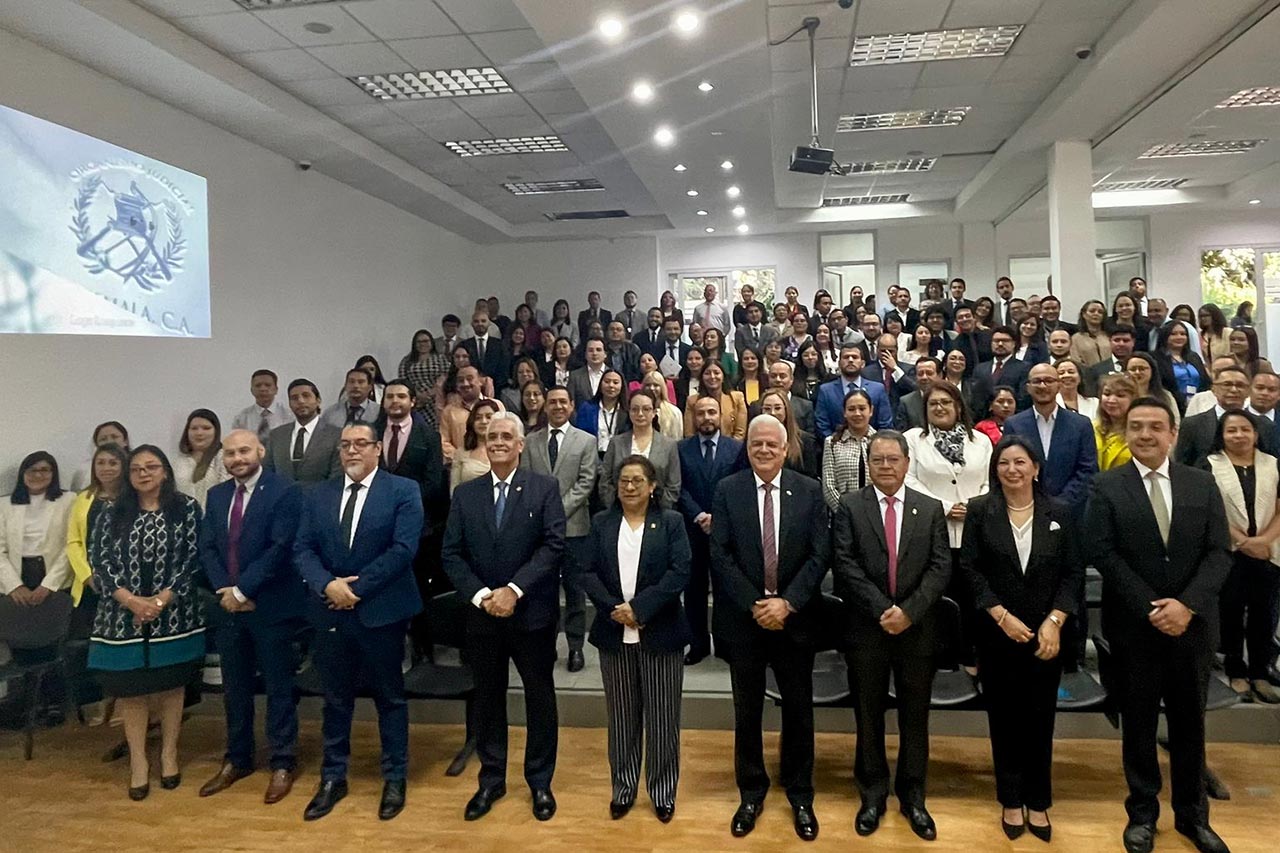
Course: Academic Training in Criminal Tax Offenses
With the participation of: Benicia Contreras Calderón, David Felipe Reynoso, Ericka Carolina Granados Acevedo, Jorge Ricardo Yurrita Rivera, and Ricardo Antonio González Soto
Documents


About
The security and legal certainty that a country can give to an investor is critical; they are risk analysis aspects that investors consider when deciding whether to create or maintain their investments. This approach was used to assess the national condition and identify the key issues in order to contribute coherently to the search for change. As a result, a high-level security and legal certainty strategy was devised, highlighting the need of enforcing clear and fair rules while also identifying it as a significant promoter of inclusive economic growth.
In the area of action, the previous approach highlights the need of digitizing administrative procedures. It also focuses on management in the development and implementation of unique capital-protection measures. The third main theme focuses on the need to change the mechanisms by which the State makes and implements laws, including increasing transparency in the development of the legislation, improving its technical quality, and assessing its execution. Overall, these will be significant features that will contribute to and increase legal stability and predictability for the general public, particularly investors. According to Guatemala Moving Forward, a state that protects individuals' rights and provides efficient services promotes families' well-being and quality of life.
All of this will be feasible with the dedication of decision-makers and the collaboration of several important actors and sectors in the promotion of the strategic objectives outlined below:
This objective fosters a digitalization effort that requires close collaboration among multiple State institutions involved in all stages of an economic activity's growth (business or industry). With an approach that meets the aims of government while also considering the experience and demands of the user, the citizen; of all natural or legal people who wish to carry out a procedure in general but with an emphasis on productivity, i.e. the investor, the entrepreneur.
One of the many benefits of moving closer to Guatemala's goal of becoming a 100% digitalstate is the ability to carry out concrete actions, such as environmental preservation, and, as an equally important side benefit, to highlight the transparency added to administrative procedures, in order to contribute to the elimination of discretion..
The proposed qualitative changes are expected to have a positive impact on the country's status in international indices in the medium term, such as rising from 96th to 35th out of 141 nations in terms of time to form a corporation.
To improve investment attraction and job development, it is critical to design and implement a reform package that includes administrative and legislative reforms that raise competitiveness. Efforts are being made to stimulate a variety of initiatives, the most important of which are: - The passage of key legislation, such as the Administrative Procedures and Requirements Simplification Act and the Insolvency Act.
- Increasing formal employment through labor legislation.
- Promote intellectual and private property protection initiatives.
- Facilitate access to productive financing in many domains, with a focus on medium, micro, and small businesses.
- Promote a regulatory framework that encourages investment, seed capital, and venture capital, as well as actions that provide contractual legal stability.
With the implementation of these significant improvements, it is predicted that, in the near term, they will have a favorable influence on the country's standing in international indexes, such as:
- Moving from 103 to 70 among 141 nations in intellectual property protection.
- Moving from 121 to 65 out of 131 nations in terms of ease of safeguarding minority investors.
The administration of justice is required in many sectors of Guatemalan development, and hence in the sphere of economic activity. It is thought vital to support efforts that employ alternative dispute resolution methods and justice centers to reduce demand for judicial services.
The Judicial Branch's emphasis on efforts to execute Legislative Decrees 8-2022 and 13-2022 (Electronic Judicial Folder), as well as modernize the management of judicial offices and proceedings, both civil and criminal, is vital and cannot be postponed.
However, because the transition from written civil and commercial processes to oral trials is necessary, the groundwork for its debate and immediate implementation must be built. Finally, it is critical to emphasize the importance of ongoing modernization initiatives to improve the structure and management of constitutional justice.
All of these recommendations for medium and long-term changes have the ability to help the country overcome its current constraints, as follows:
- Rising from 120th to 64th out of 128 countries in terms of effective criminal investigating systems.
- Overcoming the current scenario in which 128 nations are unable to resolve commercial issues in a timely way.
- Rising from 127th to 96th rank out of 128 countries in terms of civil justice that is not subject to unnecessary delays.
It necessitates the commitment and consolidation of agreements among decision makers from State Agencies, Political Parties, Civil Society Organizations, Universities, Professional Associations, and the Church, among many other entities, all of which are focused on addressing and finding solutions to the country's structural problems.
Civil society is improving techniques for monitoring the performance of public institutions. And promoting changes or the necessary regulations to create openness, ethics, probity, and the minimizing of conflicts of interest in public administration; in general, the development of an integrity culture and the improvement of the State's internal control mechanisms.
Some Latin American governments have developed instruments to analyze the economic and social consequences of policies that have been implemented. These approaches include critical performance indicators for institutions and the prosperity of the country, which is why Guatemala encourages their development with the participation of diverse public and commercial sectors to reduce resource and effort dispersion.

